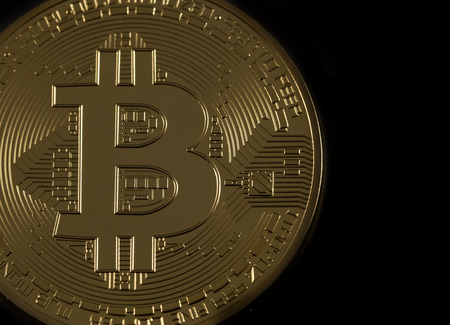During the first few years of bitcoin’s existence, its users were largely libertarians and cryptography enthusiasts. People who believed in the idea of an independent currency secured by a unique cryptographic solution.
Of course, there has always been a portion of its base consisting of speculators and investors. And I bet most of its early true believers would admit they also like the price appreciation that comes as adoption grows.
Over the last year, however, things have changed. Bitcoin is suddenly a $68 billion entity. That number represents the market cap (the total value of all coins in circulation today). You get that $68 billion by multiplying the current number of coins (16.5 million) by today’s price ($4,144 as I write).
The New York and Silicon Valley money crowds have officially taken notice. Many of them started out simply drooling over the returns. But a portion of them have fallen in love with the underlying idea and tech.
The result is an ongoing explosion in the number of funds dedicated to investing in cryptocurrencies and tokens.
CNBC’s Brian Kelly recently said that about 70 cryptocurrency hedge funds have recently launched at a “frantic pace.”
One of those funds is Kelly’s own Digital Asset Fund. I happened to meet one of his investors at a conference, and he seemed very pleased with the fund’s performance thus far.
AngelList founder Naval Ravikant co-founded one of the first crypto hedge funds in 2014, called MetaStable.
Naval is one of the best angel investors on the planet. He invested in Uber in its first round when its valuation was about $5 million. That’s just one of his many great early-stage investments.
MetaStable raised $60 million in a year when the price of bitcoin ranged from $770 to $300. So I’d imagine it’s doing quite well…
And now billionaire Mike Novogratz has announced a $500 million fund dedicated to investing in cryptocurrency.
As reported by Bloomberg…
With a $500 million hedge fund, Novogratz will be able to capture trading opportunities that require more scale, as well as wield influence with developers, entrepreneurs and regulators. Of course, he’ll also make money on other people’s money: The person familiar with his fund, who has seen early versions of marketing documents, said it will charge investors a 2% management fee and 20% of profits, with a two-year lockup.
Novogratz made a killing in cryptocurrency when he first bought $500,000 worth of Ethereum at less than $1. As I write this, it trades around $298. The trader told Bloomberg that he’s taken $250 million in profits so far.
Three of the premier venture capital firms in the world – Sequoia, Union Square Ventures and Andreessen Horowitz – are also investing heavily in the space. To say this is the smart money would be a bit of an understatement.
All of this interest from sophisticated investors has caused the price of bitcoin to rise from around $1,000 at the start of this year to a recent peak of $5,000.
And while all the new hedge funds have brought more institutional interest in cryptocurrencies, we’re still talking small time here.
Let’s compare the size of bitcoin ($68 billion) to some other common investments:
- Ethereum: $28 billion
- Alphabet (Google) market cap: $660 billion
- S&P 500 companies combined market cap: $20 trillion
- Total estimated U.S. household wealth: $118 trillion.
With the total cryptocurrency market valued at around $144 billion today, we’re talking about a small drop in a very large bucket.
The vast majority of financial institutions can’t even buy cryptocurrency, because it’s not a recognized security. It would go against their charters, which put restrictions on the types of assets they can purchase.
Bitcoin ETFs would give the entire financial world a simple way to buy in. These have been in the works for more than three years, but the SEC has thus far rejected them.
Most recently, it denied the Winklevoss Bitcoin ETF in March of this year. It should be noted that Dalia Blass has been tapped to head the SEC’s Division of Investment Management, which regulates – and approves or disapproves – ETFs. She also happens to work for the law firm that represents the Winklevoss twins… so there’s hope.
I’m not sure how much longer regulators can stall on the issue. With bitcoin volume surging to more than $2 billion per day this year, the demand is clearly there.
Tyler Winklevoss said his team is committed to bringing the fund to market…
We remain optimistic and committed to bringing the Winklevoss Bitcoin ETF to market, and look forward to continuing to work with the SEC staff. We began this journey almost four years ago, and are determined to see it through.
If they succeed, the implications for bitcoin would be substantial. This would provide a way for every investor and money manager to buy bitcoin from their retirement or brokerage account. Demand would skyrocket overnight.
There is already one publicly traded option: the Bitcoin Investment Trust. But I don’t recommend it. It trades at a huge premium to the price of bitcoin (which once again shows that the demand is there), so it’s much better to purchase crypto directly from an exchange.
If you do, you’ll be getting in before the big institutional and retail flood that many of us fully expect.
It’s one of the biggest reasons I’m so bullish on cryptocurrencies. If you go long now, you’re taking more risk in exchange for much larger potential returns.
It’s simply the best risk-reward scenario I’ve ever come across.
For guidance on navigating this thrilling young market, take our research service for a spin. You can learn more about it here.
Good investing,
Adam Sharp
Co-Founder, Early Investing
Can a $10 Bill Really Fund Your Retirement? The digital currency markets are delivering profits unlike anything we’ve ever seen. 23 recently doubled in a single week. And some like DubaiCoin have jumped as much as 8,200X in value in 18 months. It’ unprecedented... but you won’t receive any of the rewards unless you put a little money in the game. Find out how $10 could make you rich HERE.
Source: Early Investing





